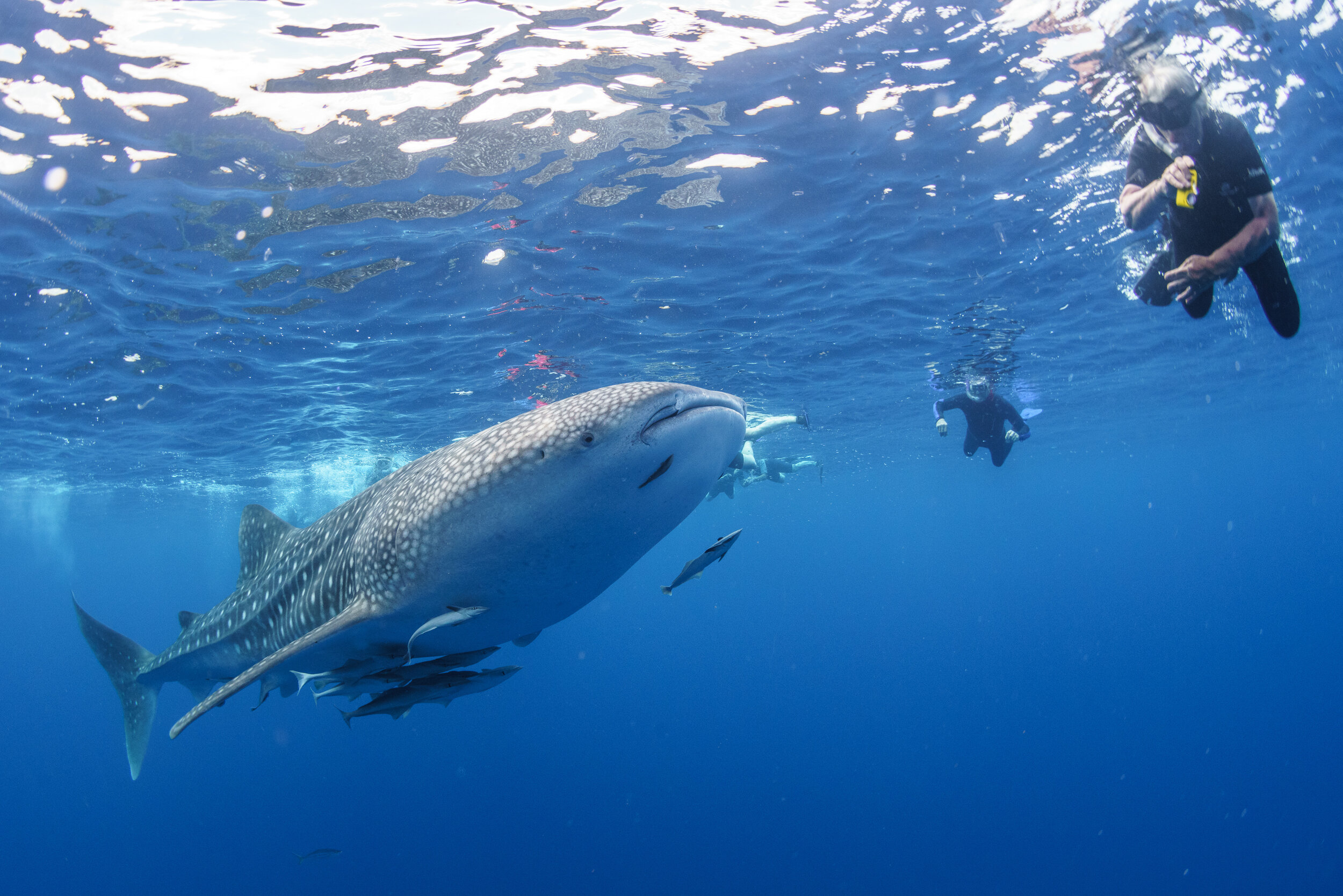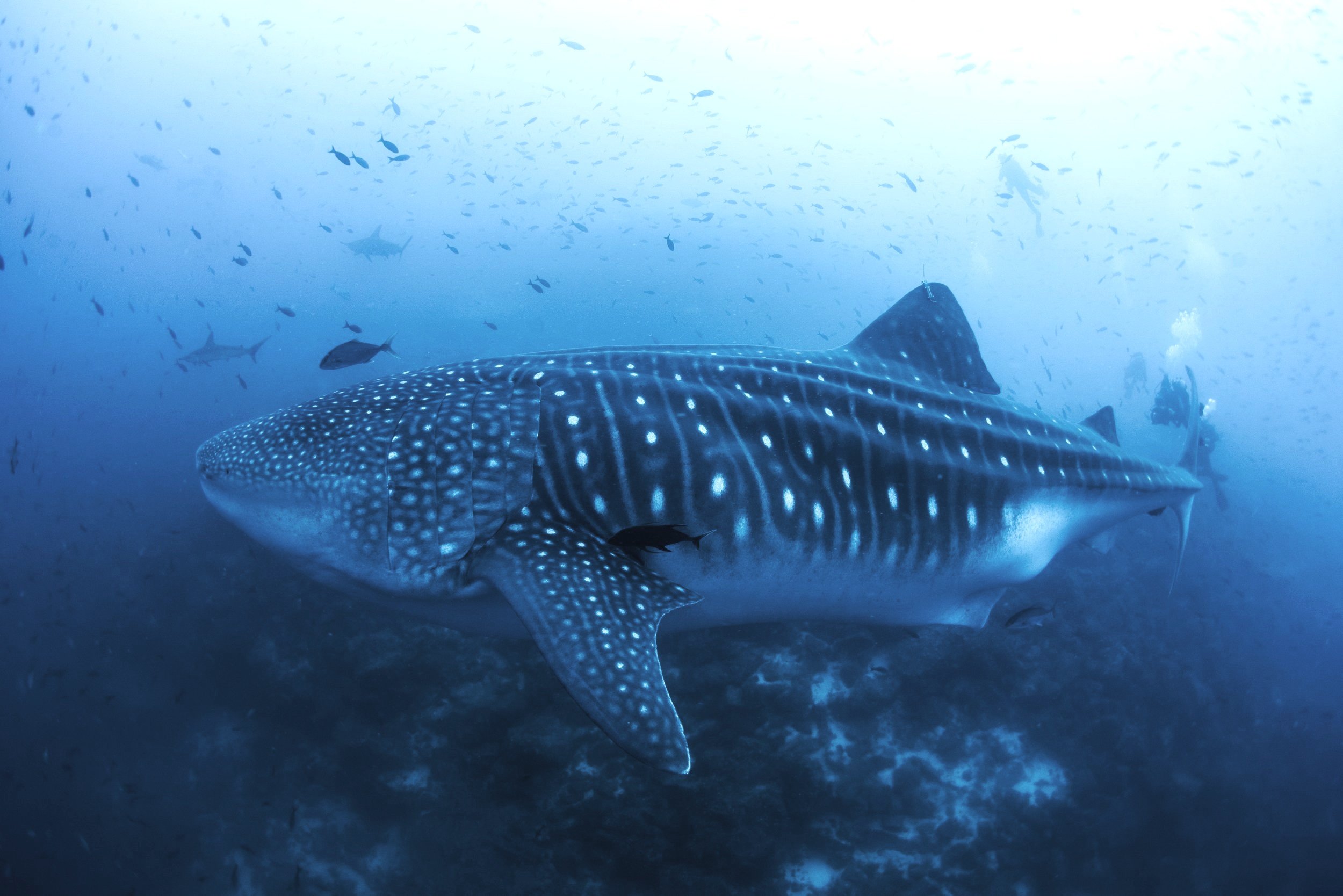New Study Values Madagascar Whale Shark Tourism at $1.5 Million Amid Calls for Stronger Protections
The three-month whale shark tourism season in Nosy Be (NW Madagascar) has been valued at $1.5 million USD
Tourists who visit specifically to swim with whale sharks spend 55% more ($901,274) than ‘casual’ whale shark tourists ($581,239)
Calls for sustainable tourism measures to protect whale sharks are overwhelmingly supported by operators and tourists
67.4% of tourists are more likely to choose a destination if whale sharks are protected
Credit: Dr. Simon J. Pierce
A new study published in the journal Tourism in Marine Environments has valued the whale shark tourism industry in Madagascar’s Nosy Be for the first time, with the three-month season worth $1.5 million USD to the local economy.* The study has revealed the economic benefit that whale sharks provide as the region prepares for the return of tourists following COVID-19.
Stella Diamant, the project’s leader and research associate with the Marine Megafauna Foundation (MMF), as well as the founder of the Madagascar Whale Shark Project, said, “This study has confirmed the importance of sustainable whale shark tourism to Madagascar’s economy, particularly during its pandemic recovery. Considering the region’s international reputation as a whale shark hotspot, and the presence of an international airport, it’s likely that its shark tourism industry will grow considerably once international travel resumes.”
Credit: Madagascar Whale Shark Project
The study found that ‘dedicated’ whale shark divers – travelers who visited specifically to swim with whale sharks – spent six times as much as ‘casual’ whale shark tourists ($547 vs. $92 respectively). Despite making up just a fifth of respondents (20.5%), the expenditure of this group was worth 55% more overall ($901,274) than causal whale shark divers ($581,239).
Both tourists (93.4%) and operators (91.7%) overwhelmingly support formal protections for whale sharks in Madagascar.**
The majority (67.4%) of tourists stated they were more likely to choose a tourism destination if whale sharks were protected.
Despite being globally endangered, whale sharks are not formally protected in Malagasy waters and are threatened by fishery bycatch, collisions with vessels, and pollution. Tour operators overwhelmingly supported legal protection for whale sharks in Madagascar and highlighted the potential to introduce regulations to avoid overcrowding, as interest in swimming with the sharks grows internationally. Operators suggested levying fines or sanctions for anyone behaving irresponsibly around the sharks.
Credit: Dr. Simon J. Pierce
Dr. Jackie Ziegler from the University of Victoria in Canada and lead author of the study said, “it’s far more difficult to scale back activities compared to managing tourism sustainably from the start. Our work has shown clear support from both tourism operators, and the tourists themselves, to ensure that swimming with whale sharks in Madagascar is a world-class ecotourism experience.”
MMF Principal Scientist Dr. Simon Pierce added, “Madagascar is best-known now for its amazing land animals, such as lemurs and chameleons, but the marine wildlife is equally spectacular. It’s fantastic to see that Nosy Be tourism operators are committed to protecting these gentle giants as well as high-quality ecotourism.”
This study was led by the Madagascar Whale Shark Project in collaboration with the Marine Megafauna Foundation, University of Victoria, Marine Wildlife Conservation Society, and Florida International University. It was supported by MADA Megafauna, Aqua-Firma, Ocean Giants Trust, and the Vocatio Foundation.
Notes to Editors
*The economic value of the whale shark tourism industry in Nosy Be was estimated using mean expenditures per person for both ‘dedicated’ and ‘casual’ whale shark divers. The estimated value of the whale shark tourism industry in Nosy Be was $1.5 million for the three-month 2019 season (September to December). ‘Dedicated’ whale shark divers spent 55% more money overall ($901,274) and six times the amount individually (mean expenditures per person: $547) compared to ‘casual’ whale shark divers (mean expenditures per person: $92; overall estimated expenditures: $581,239).
** Data was collected through 488 tourist surveys (in French or English) collected from October to November 2019. These self-administered questionnaires collected demographic data and travelers’ opinions on their whale shark experience, the importance of whale sharks in their decision to visit Nosy Be, expenditure during their trip (not including flights), and whether they would be more likely to choose a destination if whale sharks were protected. In addition, 12 of the 20 whale shark tour operators in Nosy Be took part in an online survey (December 2018) to better understand their perceptions of the region’s whale shark conservation needs and management issues.
For questions about this press release, please contact:
Stella Diamant - MMF Research Associate / Founder, The Madagascar Whale Shark Project
Email: info@madagascarwhalesharks.org
The Marine Megafauna Foundation (MMF) was created in 2009 to research, protect, and conserve the populations of threatened marine megafauna around the world. MMF’s headquarters are located in Tofo, Mozambique, where they operate as Associação Megafauna Marinha (AMM). ‘Megafauna’ are large marine species such as sharks, rays, and sea turtles. For further details, please see www.marinemegafauna.org or follow us on Instagram, Facebook, Twitter, and LinkedIn.
The Madagascar Whale Shark Project is a registered private foundation. Founded in 2018, the Foundation aims to further study and protect whale sharks in Madagascar while raising awareness and empowering local communities. For more information, visit https://www.madagascarwhalesharks.org












